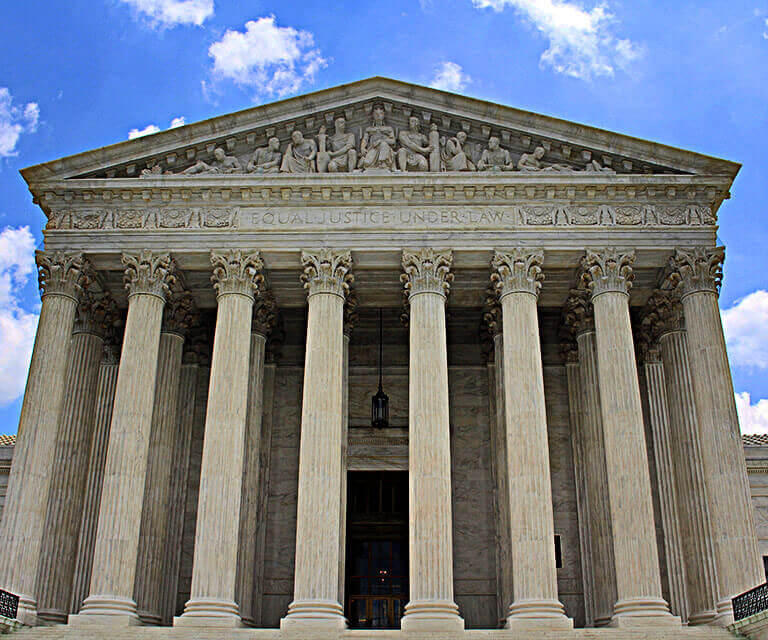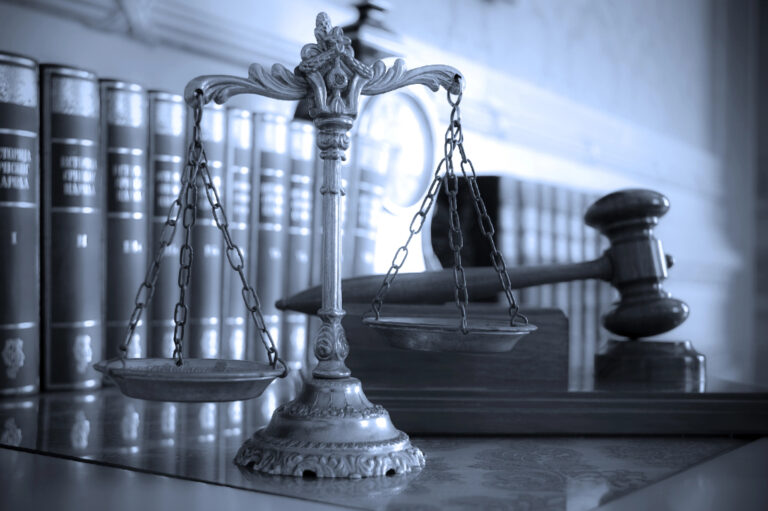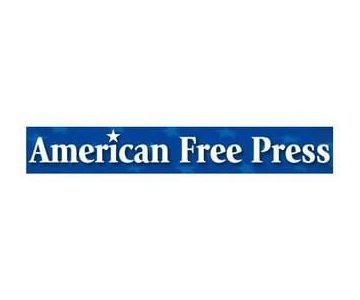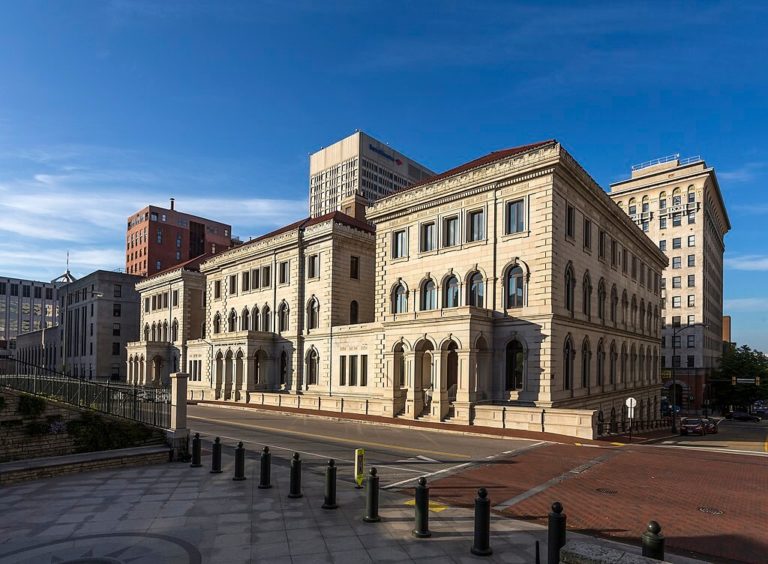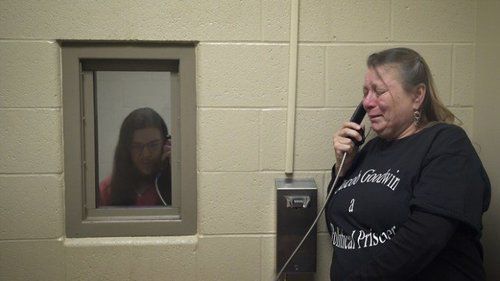FEF Files Amicus Curiae Brief with Supreme Court Challenging Use of Anti-Riot Act
The following is the text of the Amicus Curiae (Friend of the Court) brief filed with the United States Supreme Court by Free Expression Foundation lawyers on October 25. The brief presents a direct and so far ignored rationale for striking down the 1968 Anti-Riot Act. It also proposes a simple solution to the multitude of problems created by recent Justice Department prosecutions under this misbegotten and dangerous law.
For further details on the Anti-Riot Act and its history, please check out Short-Sighted Politics With Long-Term Consequences: Black Activism, The 1960S, And The Creation Of The Anti-Riot Act here on the FEF website.
No. 21-5952
In the Supreme Court of the United States
ROBERT PAUL RUNDO, Petitioner, v.
UNITED STATES OF AMERICA,
Respondent.
ON WRIT OF CERTIORARI TO THE
UNITED STATES COURT OF APPEALS FOR THE NINTH CIRCUIT
AMICUS CURIAE BRIEF BY THE
FREE EXPRESSION FOUNDATION, INC.
IN SUPPORT OF PETITIONER ROBERT PAUL RUNDO FOR WRIT OF CERTIORARI
The Free Expression Foundation, Inc. (“FEF”) respectfully submits this brief as amicus curiae in support of the petition for writ of certiorari filed by Robert Paul Rundo. (1)
STATEMENT OF INTEREST
The Free Expression Foundation, Inc., is a fledgling 501c3 nonprofit dedicated to providing legal support for persons who have suffered legal, financial, or social harm as a result of the exercise or attempted exercise of their rights of free expression and assembly, including their rights under the First Amendment. Aspiring to protect the “uninhibited, robust, and wide open” debate on public issues that seminal First Amendment jurisprudence has articulated, FEF is particularly concerned about statutes, such as the Anti-Riot Act, that jeopardize both free speech and freedom of assembly.
FEF’s commitment to the First Amendment is based on the belief that open and robust debate is essential to the health and survival of our democratic processes. FEF advocates that the federal courts be watchful guardians of our First Amendment freedoms. As a corollary to this, members of the legal profession have a special responsibility to assist the courts in defending unpopular viewpoints.
FEF’s mission is to be a true friend of the court by presenting issues and arguments that are broader than may be presented by the parties. In this case in particular, FEF believes its amicus brief provides perspectives on the Anti-Riot Act different from those set forth in the briefs of the parties.
FEF’s amicus briefs on the Anti-Riot Act were accepted by the District Court and Ninth Circuit in the cases below and by the Fourth Circuit in United States v. Miselis, 972 F.3d 518 (4th Cir. 2020).
SUMMARY OF ARGUMENTS AND STATEMENT OF THE CASE
The Department of Justice ignored Federal law when filing its indictments in this case, specifically disregarding statute 1 U.S.C. § 112. FEF argues that unlawful action by the Justice Department is a far greater threat to our freedom than four young men who scuffle with Antifa members at a political rally. Neither the courts below, nor any other court, nor the parties have addressed the effect of a 1996 amendment to 18 U.S.C. § 2101 in light of 1 U.S.C. § 112. (2)
As explained below, 1 U.S.C. § 112 is foundational to our legal system. After the 1996 amendment to 18 U.S.C. § 2101, the statute no longer states necessary elements of the crime. However, the Department of Justice, interpreting the Act in a manner at odds with its plain language, prosecuted the defendants in this case and continues to prosecute them and others. The Department of Justice has essentially usurped legislative and judicial functions. Moreover, the Department of Justice has improperly assumed the power to apply its interpretation of the statute retroactively.
I. Statutory Background.
a) 1 U.S.C. § 112 provides, in relevant part: “The United States Statutes at Large shall be legal evidence of laws…therein contained, in all the courts of the United States.” Section 112 is foundational to our legal system because it provides to the courts, the public, and the Department of Justice the exact and controlling language of our federal laws. The importance of written law has been recognized since Hammurabi’s Code in allowing citizens to know the law and in preventing manipulation of the law. (3)
b) 18 U.S.C § 2101, passed in 1968, has been amended three times by Congress. The third and last amendment was effected by the passage of Public Law 104-294, the Economic Espionage Act of 1996, and signed into law by President Bill Clinton on October 11, 1996. (4) The language of § 2101, as amended by Public Law 104-294, was and remains published in the United States Statutes at Large.
As published in the Statutes at Large, § 2101 creates an inchoate crime (5) prohibiting interstate travel or the use of the facilities of interstate commerce with the intent to engage in a number of activities related to a riot. This travel or use with intent is coupled with the requirement of the performance or attempted performance of an “overt act.” The required overt act is described as “any other overt act for any purpose specified in subparagraph (A), (B), (C), or (D) of this paragraph.” There are, however, no subparagraphs (A), (B), (C), or (D) in § 2101 as published. Thus, while an “other overt act” is required, the purpose of the “other overt act” is not given.
While one can speculate on the reasons for the third amendment to the statute, the language is unambiguous, precise, and a fully lawful amendment of § 2101. It was not a mere scrivener’s error. Since 1996, § 2101 does not provide a complete legal description of a crime.
II. Brief History of the Government’s Use of the Anti-Riot Act.
Section 2101 was used in four prosecutions between 1968 and 1992. For 20 years after the enactment of the third amendment to the statute, there were no known prosecutions. (6) In response to .0.widespread outrage at the Charlottesville events (August 2017), the Justice Department revived the Anti-Riot Act in its pre–1996 form. Indictments were issued against the defendants in this case for allegedly being involved in a riot in Berkeley California in March 2017.
The indictments accused each defendant of holding an intent to aid and abet, incite, organize, promote, encourage a riot while using facilities of interstate commerce. The indictments alleged various overt acts by defendants, such as a conference call, posting a news article on Facebook, and use of a credit card, all occurring in 2016 or 2017. See generally United States v. Rundo, — F. Supp. 3d — , 2019 WL 11779228 (C.D. Cal. June 3, 2019) (discussing indictments). The overt acts, as listed by the government, were overwhelmingly acts of political speech or organization.
At some point the Government became aware of the legal lacuna in § 2101, first raising the doctrine of scrivener’s error as justification for its interpretation of § 2101 on December 12, 2019: “The reference to nonexistent subparagraphs (A), (B), (C), or (D) is a scrivener’s error—apparently resulting from a well-meaning but poorly executed effort to fix a prior clerical error in the statute. It should instead be read as referring to paragraphs (1) through (4) of subsection (a).” Government’s Opening Brief in United States v. Rundo, et al., No. 19-50189 (9th Circuit) at page 13 (available on PACER as Item 11 on Docket). But the current writing of § 2101 is not a mere scrivener’s error. It is explicit legislation repeatedly reviewed by both houses of Congress and duly signed into law.
There are currently four versions of § 2101 now circulating in the United States, namely:
• The pre-1996 version used by the Government in this prosecution, based on the 1972 Seventh Circuit Dellinger majority opinion;
• The severed version from a Fourth Circuit opinion, United States v. Miselis, 972 F.3d 518 (4th Cir. 2020);
• The severed version from the Ninth Circuit opinion below; and
• The legal evidence of § 2101 as published in the Statutes at Large.
Upholding 1 U.S.C. § 112 would elegantly and simply resolve these conflicts by recognizing § 2101 is an incomplete criminal law, subject to correction should Congress so choose.
REASONS TO GRANT PETITION
I. The Actions of the Department of Justice in this Prosecution Raise Constitutional and Statutory Questions that Should Not Be Ignored.
(a)The Justice Department Should Not Be Allowed to Ignore 1 U.S.C. § 112, Particularly Through the Guise of the Inapplicable Vitium Scriptori Doctrine. (7)
Section 112’s importance as providing the “legal evidence of the law” has been mentioned by this Court. See United States National Bank v. Independent Insurance Agents of America, Inc., 508 U.S. 439, 448 (1993). But the Department of Justice has made clear that it regards itself as free to interpret § 2101 in a manner at odds with the plain language of that statute as set forth in the Statutes at Large. For example, in a letter to the Honorable Nancy Pelosi, Speaker of the U.S. House of Representatives, the Justice Department recently reaffirmed its independence to decide the meaning of § 2101:
The Department of Justice does not agree with certain aspects of the Fourth Circuit’s decision holding that portions of the Anti-Riot Act violate the First Amendment, and we remain committed to investigating and prosecuting individuals and groups who, like the defendants in this case, pose a threat to public safety and national security by engaging in “violent confrontations” during protests.
Letter dated February 18, 2021, Elizabeth B. Prelogar, Acting Solicitor General to The Honorable Nancy Pelosi Speaker U.S. House of Representatives (available at https://www.justice.gov/oip/foia-library/osg530d letters/us_v_miselis_530d/download.
(b) The Department of Justice Has No Power to Ignore Federal Law or Independently Rewrite the Plain Language of a Statute.
Granting the Justice Department power to ignore § 112 and construe criminal laws contrary to the language published in the Statutes at Large essentially gives the Justice Department power to legislate. This is a violation of Article I, Section 1 of the Constitution, which reserves all legislative power to Congress. The issue is simple: either the Justice Department must follow 1 U.S.C. § 112 and apply § 2101 as published in the Statutes at Large or it must be given the power to independently create criminal laws where no crime is described and to ignore language in laws that stands in its way. The first path is the only Constitutional and proper one.
(c) The Department of Justice May Not Retroactively Apply Its New Interpretation of a Criminal Statute.
Moreover, on the facts of this case, the Department of Justice is applying its interpretation of “overt act” to acts done by the Berkeley defendants prior to the Department’s own declaration of its right to use the scrivener’s doctrine. This retroactive application of the Justice Department’s construction of § 2101 violates Article I, Clause 3, Section 9 of the Constitution prohibiting ex post facto laws. The framework for the analysis of an ex post facto law is well established. If the intention of the law is to impose punishment, as the Anti-Riot Act obviously does, that ends the inquiry. See Smith v. Doe, 538 U.S. 84, 92 (2003).
II. This Case Is a Unique and Appropriate Vehicle for Review of 1 U.S.C. § 112.
This case would be the first to consider the importance of 1 U.S.C. § 112 in our legal structure and the power of the Justice Department to unilaterally rewrite a criminal law. While this may seem a mundane question, FEF argues that the subornation of government prosecutors to the written law is vital to our freedom.
CONCLUSION
Petitioners have presented compelling reasons, firmly anchored in the First Amendment, for granting a Writ of Certiorari in this case. FEF submits that this case also raises additional important Constitutional, statutory, and political issues and urges the Court to take this opportunity to address them. There may be a strong tendency to wish to aid the Justice Department in its task of investigating and prosecuting unpopular individuals and groups like the defendants in this case. The easy solution is to ignore 1 U.S.C. § 112 and give the government a pass. But the true threat to democracy is a government that ignores the written law. For prosecutors to independently rewrite a criminal law under the guise of correcting the negligence of an unnamed scrivener is an extremely dangerous precedent to allow.
The policies served by 1 U.S.C. § 112 are foundational to our legal system, particularly for laws that impose criminal sanctions. This Court should recognize and honor the importance of 1 U.S.C. § 112, not debase this law in favor of a badly written, unnecessary, and problematic act directed at political speech and organization.
For these reasons, Amicus Free Expression Foundation, Inc., respectfully asks the Court to grant a Writ of Certiorari, as Petitioners request.
(1) In accordance with Supreme Court Rule 37.6, FEF affirms that no counsel for a party authored FEF’s amicus brief in whole or in part and no counsel or party made a monetary contribution intended to fund the preparation or submission of the brief.
In accordance with Supreme Court Rule 37.2(a), FEF provided Counsel of Record for all parties notice of FEF’s intention to file its amicus brief more than 10 days prior to FEF’s deadline to file its brief. All parties consented in writing (email) to FEF’s filing.
(2) “There can be no estoppel in the way of ascertaining the existence of the law.” United States Nat. Bank of Ore. v. Independent Ins. Agents of America, Inc., 508 U.S. 439, 447 (1993) (citing South Ottawa v. Perkins,94 U.S. 260 (1876)).
(3) http://45338297.weebly.com/historical-significance.html
(4) Public Law 104-294 (page 110 STAT. 3500 (h)) reads: “Section 2101(a) of title 18, United States Code, is amended by striking (1) and by redesignating subparagraphs (A) through (D) as paragraphs (1) through (4), respectively.” The extensive procedures of enactment are recorded at https://www.congress.gov/bill/104th-congress/house-bill/3723/ actions.
(5) Generally, inchoate offenses require proof beyond a reasonable doubt that a defendant “intend[ed] to further an endeavor which, if completed, would satisfy all of the elements of a substantive criminal offense.” See Salinas v. United States, 522 U.S. 52, 65 (1977).
(6) The cases relied upon by the government to support its use of § 2101 all predate the 1996 amendment of § 2101: In Re Shead, 302 F. Supp. 560 (N.D. Cal. 1969), Nat’l Mobilization Comm. To End War in Viet Nam v. Foran, 411 F.2d 934 (7th Cir. 1969), United States v. Dellinger, 472 F.2d 340 (7th Cir. (1972), United States v. Hoffman, 334 F. Supp. 504 (D.D.C. 1971), and United States v. Markiewicz, 978 F.2d 786 (2d Cir. 1992).
(7) The power of the courts to use the doctrine of vitium scriptori when reviewing a criminal law is markedly different from its invocation by the prosecution sua sponte. Application of vitium scriptori by the courts has varied, with many courts correcting “typos” and some courts refusing to do so. 733 F.2d 1168, United States v. Faygo Beverages, Inc., See, e.g., 1170 (6th Cir. 1984) (recognizing that Congress unintentionally eliminated a penalty section in recodifying the Interstate Commerce Act, but holding the defendant not subject to criminal penalty for his conduct because “it would be unreasonable to require persons confronted with the plain language of a criminal statute to go beyond that statute in order to determine whether Congress really meant what it clearly said.”).
If you would like to help us continue our work, please consider making a small tax-deductible donation to the FEF. Every dollar counts in our fight to keep Free Expression free. Click the DONATE button at the top right corner of this page, and thank you!
*** IMPORTANT DISCLAIMER***
Information herein and throughout this website is for educational purposes only and does not constitute legal advice directed towards individuals, groups, or organizations.
FEF does maintain relationships with lawyers, law firms, and other experts throughout the United States and can help direct people towards such resources and, to an extent, serve in an advisory capacity. But the FEF is not, in any way, a law firm or legal partnership.
The FEF recommends that legal advice should always be obtained by a qualified attorney licensed to practice law in the relevant jurisdiction.

